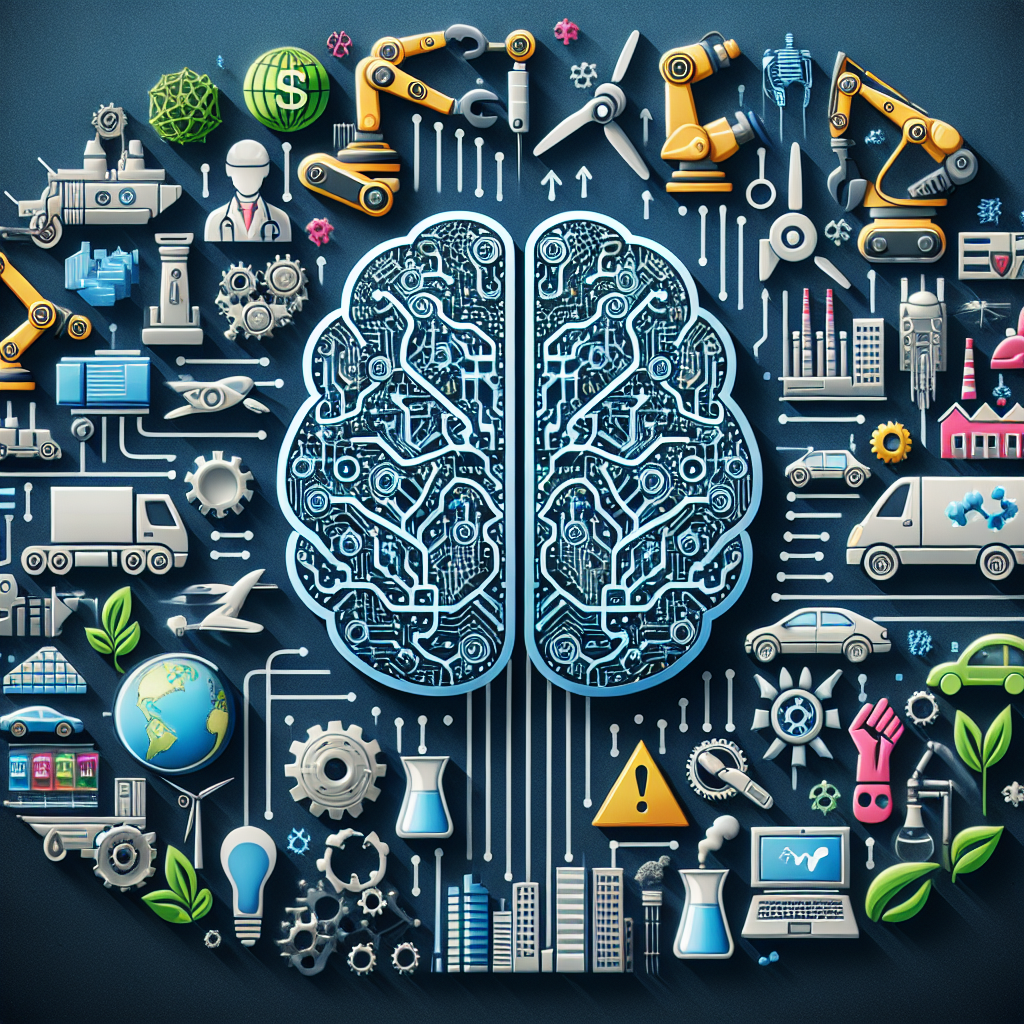The Future of AGI: How This Technology Is Transforming Industries
Artificial General Intelligence (AGI) is a term that refers to machines that possess the ability to understand, learn, and apply knowledge across a wide range of tasks, much like a human being. While still in its early stages of development, AGI has the potential to revolutionize industries and change the way we live and work. In this article, we will explore the future of AGI and how this technology is transforming various industries.
1. Healthcare
One of the most promising applications of AGI is in the field of healthcare. AGI-powered systems can analyze vast amounts of medical data to identify trends, diagnose diseases, and suggest personalized treatment plans. This can lead to more accurate diagnoses, faster treatment, and improved patient outcomes. AGI can also assist in drug discovery, helping researchers identify new treatments for diseases more quickly and efficiently.
2. Finance
In the financial industry, AGI can be used to analyze market trends, predict stock prices, and optimize investment portfolios. AGI-powered systems can process vast amounts of data in real-time, enabling traders to make more informed decisions and react quickly to changing market conditions. AGI can also help detect fraudulent activities and improve risk management practices.
3. Manufacturing
AGI has the potential to revolutionize the manufacturing industry by enabling autonomous robots to perform complex tasks with a high level of precision and efficiency. AGI-powered systems can optimize production processes, reduce waste, and improve quality control. This can lead to lower costs, faster production times, and higher customer satisfaction.
4. Transportation
In the transportation industry, AGI can be used to develop autonomous vehicles that can navigate roads safely and efficiently. AGI-powered systems can analyze traffic patterns, monitor road conditions, and make real-time decisions to avoid accidents and congestion. This can lead to safer roads, reduced traffic congestion, and lower fuel consumption.
5. Customer Service
AGI-powered chatbots and virtual assistants are already transforming the way companies interact with customers. These systems can provide personalized recommendations, answer customer queries, and resolve issues in real-time. AGI can also be used to analyze customer feedback and sentiment to improve products and services.
6. Education
AGI has the potential to revolutionize education by providing personalized learning experiences for students. AGI-powered systems can adapt to each student’s learning style and pace, providing targeted feedback and support. This can lead to better academic outcomes, increased engagement, and improved retention rates.
7. Agriculture
In the agriculture industry, AGI can be used to optimize crop production, monitor soil conditions, and predict weather patterns. AGI-powered systems can analyze data from sensors and drones to provide farmers with real-time insights and recommendations. This can lead to higher crop yields, reduced water usage, and improved sustainability practices.
8. Entertainment
AGI-powered systems are already transforming the entertainment industry by creating personalized content recommendations, generating realistic virtual environments, and enhancing the gaming experience. AGI can also be used to develop virtual actors and characters that can interact with users in real-time.
FAQs:
Q: What is the difference between AGI and artificial intelligence (AI)?
A: Artificial General Intelligence (AGI) refers to machines that possess the ability to understand, learn, and apply knowledge across a wide range of tasks, much like a human being. Artificial intelligence (AI), on the other hand, refers to machines that can perform specific tasks or solve specific problems using pre-defined algorithms.
Q: Will AGI replace human workers?
A: While AGI has the potential to automate many tasks currently performed by humans, it is unlikely to completely replace human workers. Instead, AGI is more likely to augment human capabilities, enabling us to work more efficiently and effectively.
Q: What are the ethical implications of AGI?
A: AGI raises important ethical questions, such as how to ensure that machines make ethical decisions, how to protect privacy and data security, and how to prevent bias in algorithms. It is important for researchers, policymakers, and industry leaders to address these issues proactively to ensure that AGI benefits society as a whole.
Q: When will AGI be widely available?
A: While AGI is still in its early stages of development, researchers are making rapid progress in advancing the technology. It is difficult to predict when AGI will be widely available, but experts estimate that we could see significant advancements in the next decade.
In conclusion, the future of AGI is filled with possibilities and promises. This transformative technology has the potential to revolutionize industries, improve our lives, and shape the way we interact with machines. As researchers continue to advance AGI, it is important for society to consider the ethical implications and ensure that this technology is used responsibly for the greater good.

